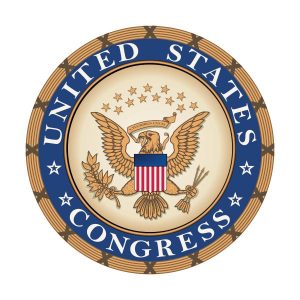 U.S. Congress has now told European regulators directly not to mess with U.S. swaps transactions.
U.S. Congress has now told European regulators directly not to mess with U.S. swaps transactions.
Earlier this month, members of the House Agriculture Committee’s Commodity Exchanges, Energy, and Credit Subcommittee met with European financial regulators.
The House Agriculture Committee described the meeting in more detail, “House Agriculture Committee’s Commodity Exchanges, Energy, and Credit Subcommittee Chair David Scott and Ranking Member Austin Scott, both of Georgia, issued the following statement Thursday after meeting with financial market regulators from the European Commission (E.C.) to discuss new amendments to the European Union’s European Market Infrastructure Regulations (EMIR 2.2) that could potentially subject U.S. clearinghouses to regulation within the E.U.:”
This dispute continues to unfold as European regulators have suggested that after Brexit, they will insist on approving certain swaps transactions all over the globe, including in the U.S.
“Relying on foreign regulation and regulators will continue to be very important, but in some cases, as you identified when there are systemic risks, in those cases, you want better tools from a European perspective, and making sure that the risks from a European perspectives are- that we have the information on that and if there is a concern we can address that from a supervisory perspective,” said Steven Maijoor, the Chair of the European Securities and Market Authority (ESMA), when he was interviewed in 2019 by Walt Lukken, the Chief Executive Officer (CEO) of the Futures Industry Association (FIA) on Lukken’s podcast.
Both the current head of the Commodities Futures Trading Commission (CFTC), Heath Tarbert, and his predecessor, Christopher Giancarlo, have insisted that all swaps transactions done in the U.S. will be regulated by U.S. regulators only.
“I want to be very clear on this. I agree with you wholeheartedly that our clearinghouses and exchanges need to be exclusively supervised and regulated by U.S. regulators.” Dr. Tarbert stated during his nomination hearing in 2019. “Again, I go to the very point that you raised, that it’s very important that the United States has the jurisdiction and sovereignty to regulate its own markets.”
While there is a great deal of partisanship currently in U.S. Congress, this dispute with European Commission has drawn bi-partisan agreement, backing U.S. regulators.
Now, it seems that the U.S. Congress is prepared to act to make sure that Europe backs down. Here is the statement from the two Congressmen Scott of Georgia.
“The Commodity Futures Trading Commission (CFTC) is a capable, competent financial regulator which has a proven record of safekeeping American derivatives markets. We support the CFTC’s work in forging consensus and building a cooperative framework to promote strong, well-regulated global derivatives markets.
“Unfortunately, the European Commission’s proposal to regulate third-party clearinghouses disrupts that work and sets back the cause of cooperation. We have existing agreements and cooperative work underway, and Europe should not use the disruptions of Brexit to move the goalposts on that collaboration.
“We told our European colleagues in no uncertain terms that our continued partnerships and the stability they bring depend on all countries coming to the table in good faith. If they’re unable to do that and continue to try to exert foreign control over U.S. markets, we in Congress will make sure that the CFTC is empowered to defend our sovereignty and protect our market interests.”
This is not the first time that the House Committee on Agriculture has floated the idea of legislation to pressure the Europeans to back off.
During a hearing in November 2019, Michael Conaway, a Republican from the State of Texas and the ranking member- or head of the minority- on the House Agriculture Committee addressed potential new legislation.
He stated, “To an extent, that trust cannot be built among those regulators if foreign jurisdictions continue to seek to impose direct supervisory authority, this legislation will also include a second provision. The amendment before us includes language that directs the Commission to reconsider the appropriateness of the exemptions that we extend to foreign jurisdictions and to curtail those in response.”
He concluded about these provisions, “taken together these two provisions give our international colleagues a stark choice, one of mutual respect and cooperation or one of antagonism and recrimination. My hope is the path forward is the former and not the latter.”









